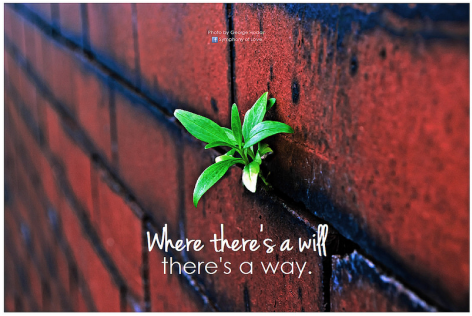|
Welcome Readers,
Below you will find an extended version of the article published by KSL. Please enjoy! As a child therapist, I often wonder what sets apart the children who are able to manage and thrive in adverse environments plagued by adversity, abuse and poverty, from those who seem to succumb to it. But, resiliency doesn’t have to mean the ability to bounce back from such extremes. Some children are just more flexible, able to pick themselves up and dust themselves off. Resiliency is a fascinating subject of study pertinent to parenting. In 2005 Human Development specialists Thomas Boyce and Bruce Ellis published a paper in the Journal of Developmental Psychology which provided a metaphor for a phenomenon they were seeing in their study of kids susceptibility to their family environment. They noted some kids were “orchids” and others were “dandelions”. Dandelion children can grow anywhere, they seemed to have the resilience to survive through difficult family life, poverty, abuse. The orchid child is highly sensitive to their environment, specifically to the type of parenting they receive. Those who are neglected by parents, either physically or emotionally are impacted in the long term as measured by teenage misbehavior including aggression, drug abuse and delinquency. Although, those same children who are nurtured- flourished. This was an interesting finding, it was a novel idea that that the orchid children had the capacity for both positive and negative outcomes. Long story short--researchers found variants in the children’s CHRM2 gene which interacts with the child's environment. When the variant is combined with poor parenting, these children exhibit outcomes such as aggression and delinquency. But, children with this same variant combined with attentive parenting were shown to have positive teenage outcomes. The take-home is that whether or not your child is a “dandelion” or a “orchid” it’s in their best interest to develop a sense of inner grit. We know that resiliency has factors that are functioning at a cellular level, but we also know those factors are impacted by our environment. And, as parents, we have some control over our child's environment. Undoubtedly, children are going to experience some sort of hardship in their early life. We can hope for bullying or the difficulty of transitioning into a new classroom vs. the more serious, abuse or loss of a parent. Children who are able to rebound from adversities are healthier psychologically, show better outcomes academically and socially. Resilience turns out to be a life skill, and research by the American Psychological Association as well as the American Academy of Pediatrics has shown it’s something we can cultivate in our kids. Dr. Kenneth Ginsburg of the Children’s Hospital of Philadelphia authored a guide in collaboration with the American Academy of Pediatrics focused on building resilience in children and teens. They’ve outlined several factors that parents can instill in their children. Connection It’s not a surprise that adults who have a network of friends and family to call on in times of stress show less mental health issues, live longer, and have fewer chronic health diagnosis. That being said, social skills are learned and childhood is the time for practice. By providing ample opportunity and modeling pro-social skills, your children will be on their way. The more stable, nurturing adults a child has to rely on, the better. Connections to others serves as a protective factor for children at risk. We know that if a child has just one person who consistently offers caring, unconditional support they can use that foundation for healthy development. Competence Empowering children to make their decisions builds mastery. If your child chooses a hobby, support them in this endeavor, provide resources and encouragement. Children who see that they are successful in a specific area of life feel hopeful and in control. Children are likely to see that if they have skills (reading, writing, getting along with others, problem solving) then they are more optimistic when facing a new barrier. This is also true even if the skills they excel at aren’t transferable to the task at hand. Contribution Children who see that they have an influence on the world are more resilient. Encouraging your child to contribute to others will provide them perspective, gratitude and an understanding that they can make an impact. Contribution builds a sense of purpose, which is important for persistently moving towards a goal, and feeling that its attainable. Coping The best way to teach your child positive coping skills is to use them yourself. Sometimes I suggest parents of young children to verbalize “I'm upset and I’m going to take a few deep breaths to calm down.” This is the ultimate way to “walk the walk.” Guiding your child through the inevitability of disappointment and sadness is a way to show that life goes on. Additionally, pointing out that your child has managed difficult situations in the past helps to build competence. Talk through a resiliency inventory. Ask your child to recount a time there was a challenge in their life? What did they do in order to both survive and thrive? Ask if any of these skills can be used currently. We all want our children to succeed and one of the best predictors is a strong sense of self. Children who are resilient feel that they have the tools and support to deal with upsetting events. As parents we can’t control what comes at them in life, but we can help them to build their response to it.
1 Comment
Lauri Lund
11/30/2018 04:52:28 pm
Dear Whitney,
Reply
Leave a Reply. |
Archives
March 2024
Categories
All
|

 RSS Feed
RSS Feed